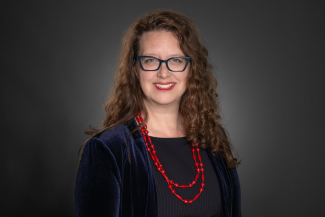Patricia Solís
Tempe Campus
Patricia Solís, PhD, is Executive Director of the Knowledge Exchange for Resilience at Arizona State University, a campus-wide effort to link multi-sector community needs with research innovations in building community resilience. The effort was launched by a generous grant from the Virginia G. Piper Trust. She is Associate Research Professor of Geography in the School of Geographical Sciences and Urban Planning and holds a faculty affiliation with the School for the Future of Innovation in Society.
She is Co-Founder and Director of YouthMappers, a rapidly-growing consortium of student-led chapters on more than 420 university campuses in 80 countries who create and use open spatial data for humanitarian and development needs in collaboration with the United States Agency for International Development, the main co-founding sponsor. The network enjoys donors and partners from the non-profit and private sectors.
Prior to joining ASU, she was Co-Director of the Center for Geospatial Technology at Texas Tech University and Research Associate Professor of Geography in the Department of Geosciences and affiliated with the TTU Climate Science Center. She served Deputy Director and Director of Research at the American Association of Geographers. Dr. Solís received a BS in Physics, BA in German, and MA in Geography from Kansas State University. She earned her Ph.D. in Geography from the University of Iowa where she was a Presidential Fellow.
Solís has developed and executed more than 50 competitive research programs, 60% of them as lead, with funding totaling ~ $19M as PI, promoting innovations in research, education and community collaboration with support from federal agencies such as the US National Science Foundation, the US State Department, NASA, NOAA, US Geological Survey, USAID, and others. Her research focuses on designing experiences for exchanges of knowledge, fellowships, and applications of open geospatial technologies to address socially relevant challenges, from water resource conflict to climate change-induced hazards to broadening participation in higher education. Her creative leadership has resulted in the development of collaborative and participatory research methodologies, youth-engaged peer exchanges, new designs for research-centered learning, and the sustained institutionalization of public-private partnerships centered on using digital geographic technologies for sustainable development.
1998 – 2002 PhD in Geography, University of Iowa
1994 - 1996 Master of Arts in Geography, Kansas State University
1989 - 1994 Bachelor of Science in Physics, Bachelor of Arts in German, Kansas State University
1992 - 1993 Eidgenössische Technische Hochschule (ETH), Zürich, Switzerland
Geography
Community Resilience
Climate Change Risk
Sustainability
Applied GIS
International Development
Community Engagement
